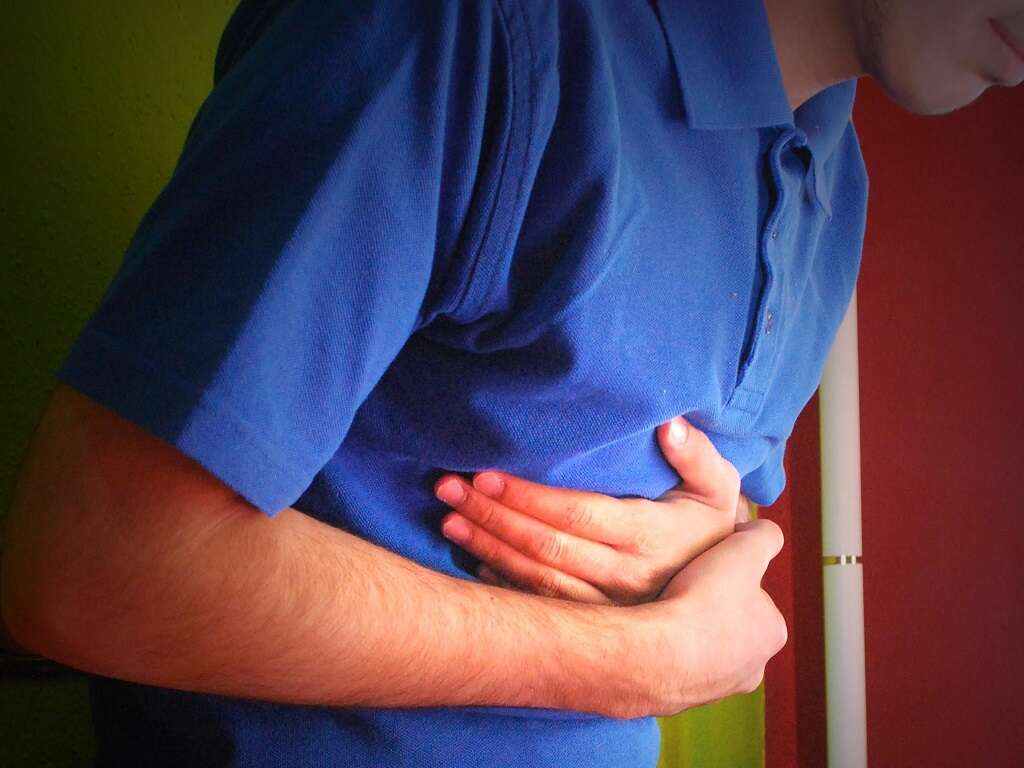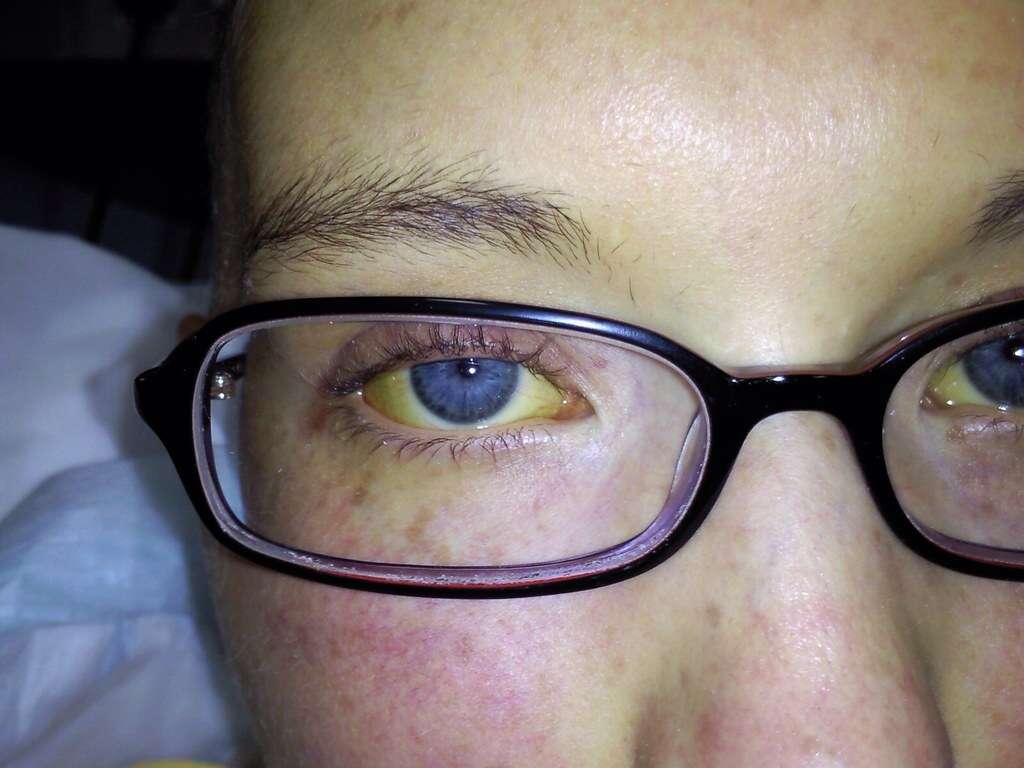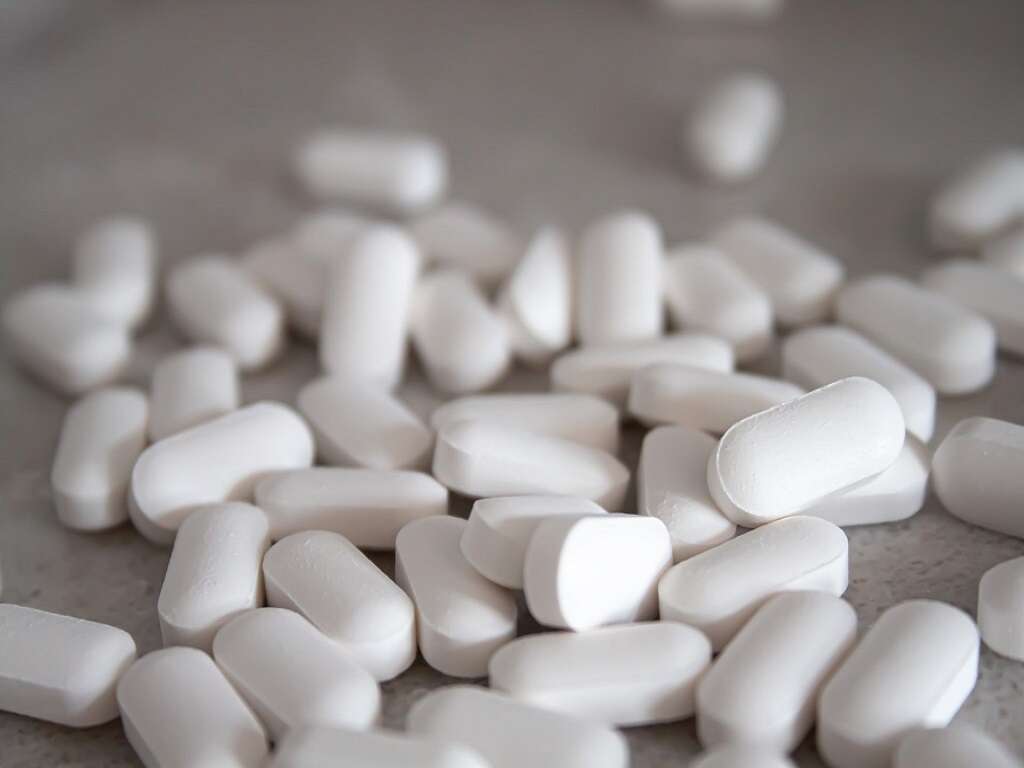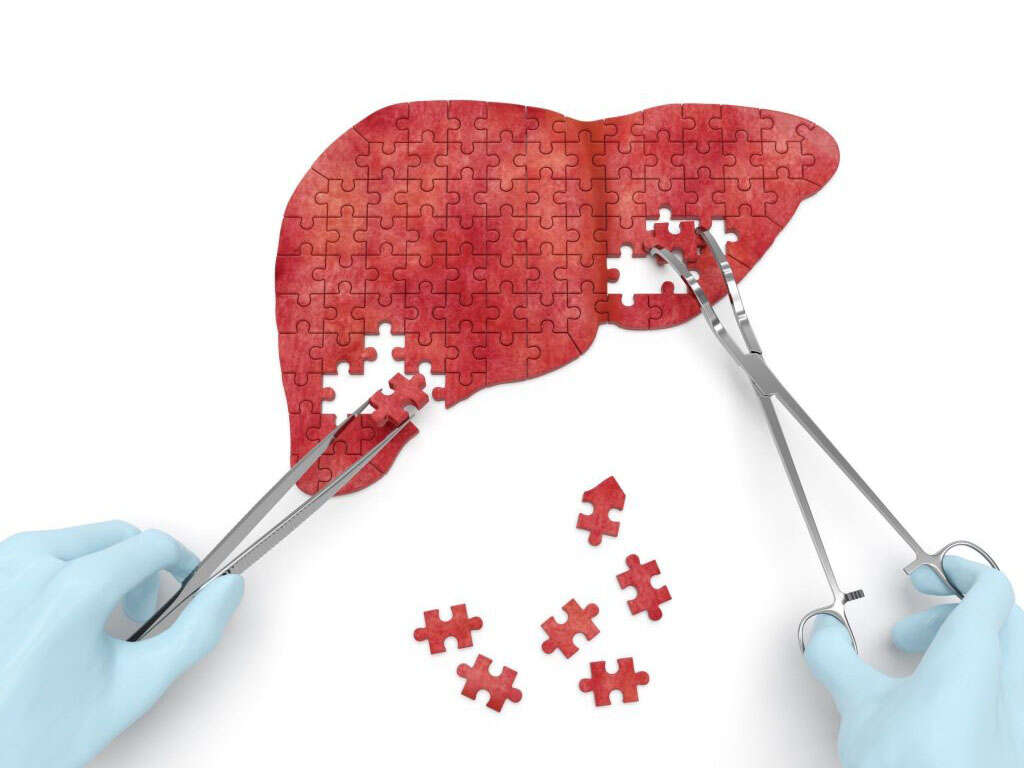10 Liver Disease Symptoms
Our livers are very important to us. Their main function is to help clean the body of toxins but that is not all they are responsible for. They also help regulate the levels of hormones in our body, our energy levels, and a range of other important functions.
They need to be looked after properly, though, and we can become quite ill if something goes wrong. Liver disease affects millions of people worldwide. It is often caused by excess alcohol consumption, obesity, and an unhealthy way of life.
However, even otherwise healthy people can develop liver disease. Liver disease is a blanket term that can apply to a wide range of problems involving the liver.
Symptom #1: Jaundice
Our liver’s main function is to help clean toxins from the blood. It is also responsible for cleaning up old blood cells from the blood. The breaking down of old blood cells results in a substance known as bilirubin and this is usually dealt with by the liver. However, with a failing liver, the bilirubin may not be dealt with as it usually is.
This can lead to bilirubin flowing through the blood. It is yellow in color and this yellowness shows through the skin and the eyes. This causes the patient to take on a yellowish hint in what is a clear signal that something is wrong with the liver. This condition is known as jaundice.
Symptom #2: Easy Bruising
When you cut yourself or damage your blood vessels in some other way, the fluids within are able to escape. This results in bleeding and losing too much blood can put your life in serious danger. Fortunately, though, most leaks are plugged quickly with the help of certain proteins that help the blood to coagulate.
These proteins are produced in the liver and, if the liver is not functioning properly, the production of the proteins may be reduced. This means that blood can take longer to coagulate, and this can mean you bruise more easily because blood is able to leak out. People with this condition obviously need to be careful as damage to the body can become more dangerous than usual.
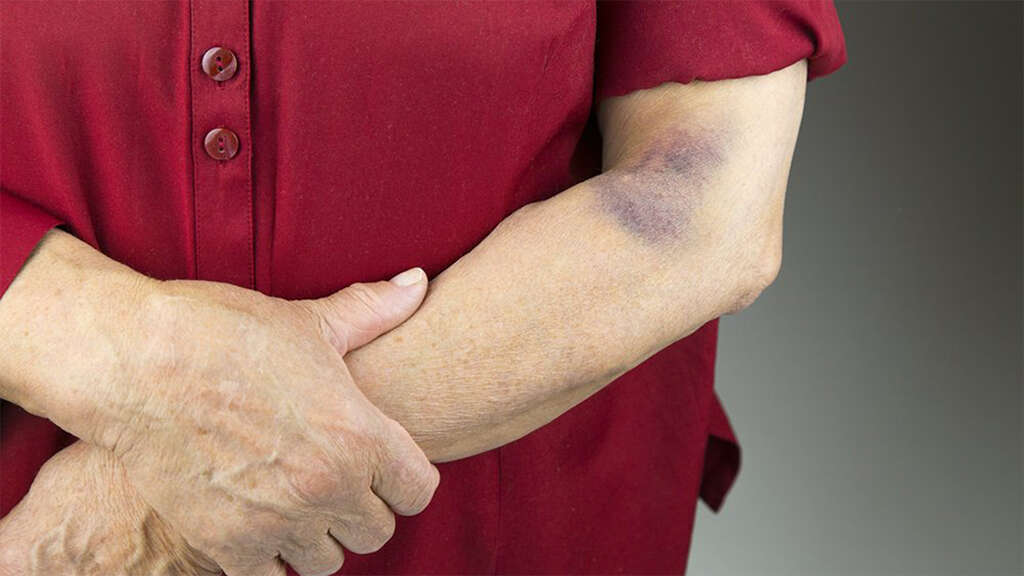
Symptom #3: Abnormal Stools
Looking at your own stools is far from a pleasant thing to do, but still, it is recommended from time to time. Some toilets are even designed with an inspection platform for this very reason, but we’d still rather just flush it away without giving it a second glance. If you do stop to look at your stools, though, it could give you a warning that all is not well.
If your stools are pale in color then it could be a sign that you have liver disease. Other abnormalities include stools that are tar colored, or stools that have blood in them. If your stools are abnormal in any way, you should arrange to speak with a medical professional.
Symptom #4: Bad Breath
Bad breath can be quite embarrassing, potentially leaving us reluctant to speak or open our mouths at all, except to eat. It is usually caused by a build-up of certain bacteria in the mouth. These bacteria omit an unpleasant odor which is what we smell. These bacteria are not always the cause of bad breath, though.
Liver disease can lead to a high volume of dimethyl sulfide in the blood. This causes your breath to take on an unpleasant, musky odor that is known as fetor hepaticus. It is also sometimes known as the breath of the dead. Such a strong and distinct odor is a clear sign that you may have liver disease.
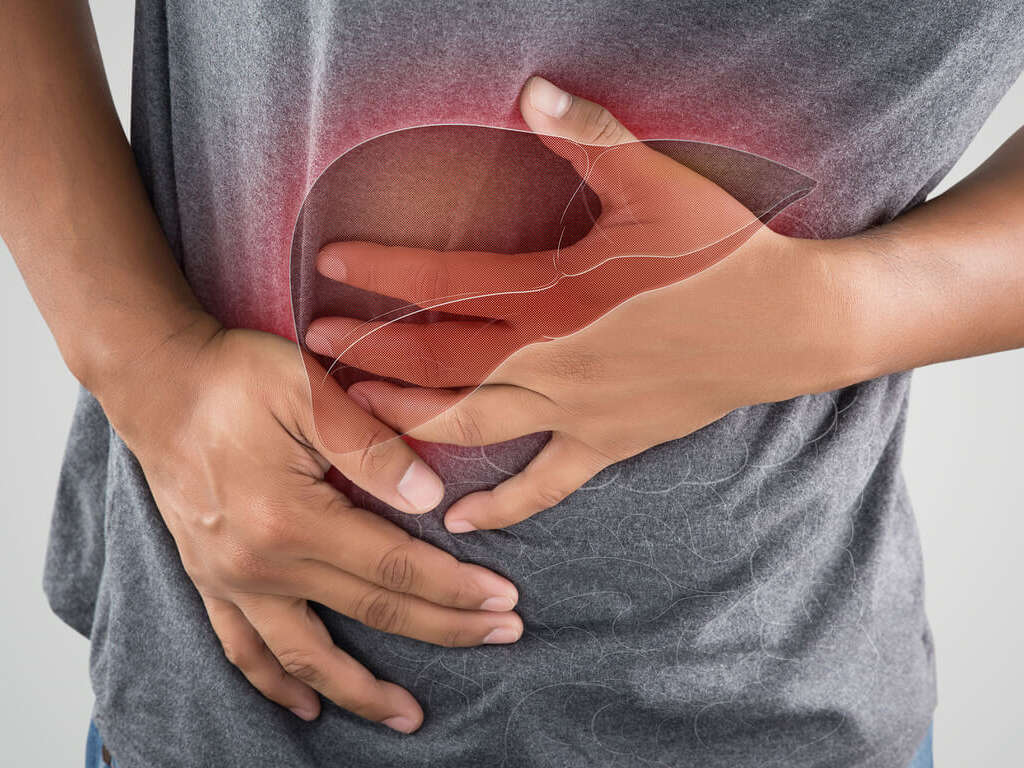
Symptom #5: Itchy Skin
Itchy skin is quite a common symptom. We don’t usually pay much attention to it other than scratching it, of course, but there are some times when it might be necessary to pay a great deal of attention to it indeed. If your skin is itching for no particular reason, it might be because you have liver disease.
Bile is a substance that is important to us because it helps us to digest certain foods. If somebody has liver disease, though, then the bile duct can become blocked. This can cause it to flow back into the bloodstream and if it is able to accumulate under the skin, it can cause us to feel itchy.
Symptom #6: Palmar Erythema
The palms of our hands help us to grip tightly to objects due to their slightly rough surfaces, which help us grip onto smooth objects. They are also quite sensitive, packed with nerve-endings that help us to detect heat and other sensations. We don’t usually notice them much, but some conditions involving the palms can be quite uncomfortable.
Liver disease can lead to abnormal levels of hormones flowing through the blood. This can cause the palms to become red and itchy, sometimes with a burning sensation. This is a condition known as palmar erythema and is a sign that you might be suffering from liver disease.
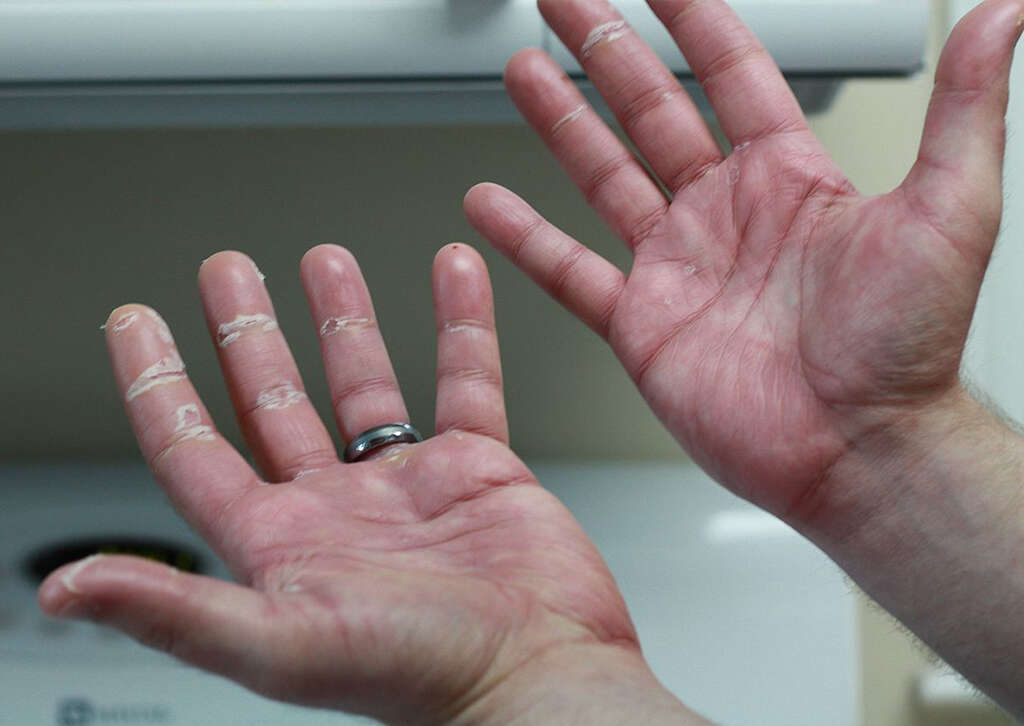
Symptom #7: Face Blemishes
Having a clear, healthy complexion is important to a lot of people. Many will put a lot of effort into keeping their skin as clear as possible, even spending a lot of money on cosmetics and other products. If you have liver disease, though, then keeping a clear complexion can become a lot harder.
Melanin is a substance that causes the pigmentation of our skin. If there is more of it in the skin, then the skin will become darker. Liver damage causes an imbalance of hormones in the body and this will, in turn, cause more melanin to be produced. This can cause patches of the skin to become darker, or even the entire face or body.
Symptom #8: Abdominal Pain
Stomach pains can be very uncomfortable to bear. They can leave us curled up in agony at times. Even milder stomach pains can still be uncomfortable and make it difficult for us to sit as we usually would. Usually, though, they are only temporary and will pass without causing any lasting harm.
If stomach pains are particularly severe, though, or they are long lasting, it could be a sign that something is seriously wrong. Prolonged pain of the abdomen could be a sign that you have liver disease. It is also a symptom of other illnesses. Another associated symptom is a swelling of the abdominal area.

Symptom #9: Fatigue
At any one time, your blood will contain a variety of toxins. However, these are usually present in low-levels and will be filtered from the blood by the liver. The liver also plays an important role in our metabolism. When liver disease occurs, these functions are likely to become impaired.
With the liver unable to help with the body’s metabolism, we can begin to feel low on energy. What’s more is that the increased volume of toxins in the blood can make it harder for the brain to function. This can lead to difficulty paying attention and the patient can also become confused more easily than usual.
Symptom #10: Spider Angiomas
Estrogen is a hormone that plays a role in the sexuality of women. It is largely responsible for the formation of breasts and also plays a role in the menstrual cycle. However, it is not present only in women as men also have it, only in smaller quantities.
When liver disease occurs, the levels of estrogen in the blood can rise. This is because the liver is no longer metabolizing the body’s hormones as it usually would do. This results in spider angiomas, which are small burst capillaries that lie just beneath the skin and appear spider-like from the surface.



